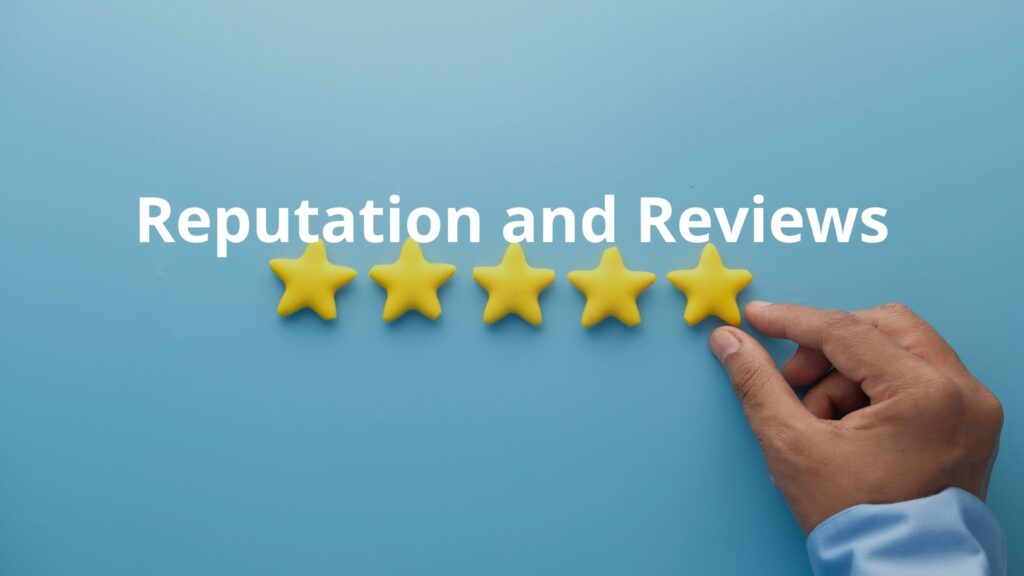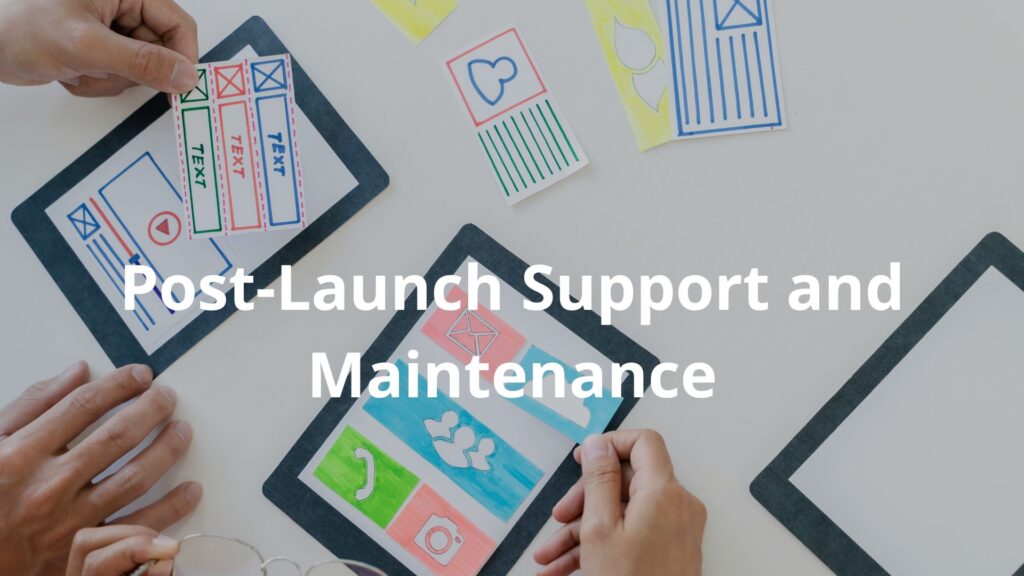
Introduction
In today’s digital age, having a strong online presence is vital for businesses of all sizes. Your website serves as your virtual storefront, a point of interaction with your customers, and a key component in shaping your brand’s identity. Therefore, selecting the right web development company is one of the most crucial decisions you’ll make. The right partner can help you achieve a professional, user-friendly website that drives traffic, engages visitors, and converts them into loyal customers. On the other hand, a poor choice can lead to a website that underperforms and fails to meet your business goals.
This blog will guide you through the essential factors to consider when choosing a web development company, ensuring that you make an informed decision and set yourself up for success.
1. Experience and Expertise
The first and foremost factor to consider is the experience and expertise of the web development company. A company with experience in building websites for businesses similar to yours is more likely to understand your requirements, industry challenges, and target audience.

Evaluate the Company’s Portfolio: Examine the company’s portfolio to get a sense of their design style, functionality, and the industries they serve. A well-rounded portfolio demonstrates the versatility of the company’s team and their ability to adapt to different industries and project needs. Don’t just look at the aesthetics of the websites, but also consider how well the websites are structured, how user-friendly they are, and whether they offer features that align with your goals.
Check for Industry Specialization: Some web development companies specialize in specific industries or technologies, such as eCommerce, real estate, healthcare, or education. If your business belongs to one of these niches, choosing a company with experience in your field can help you avoid common pitfalls and save time. They will likely have insights into industry best practices and know how to address common challenges.
Assess Technical Skills: Ensure the company has expertise in the necessary technologies for your project. For example, if you need a complex website with custom functionalities, you’ll want to hire a team skilled in custom web development, while a simple brochure site might not require such expertise. Look for expertise in content management systems (CMS), front-end technologies like HTML5, CSS3, and JavaScript, and back-end technologies such as PHP, Ruby on Rails, or Python.
2. Reputation and Reviews
A company’s reputation speaks volumes about its reliability, professionalism, and quality of work. Before committing to a partnership, it’s essential to dig deeper into the company’s reputation by looking at reviews, testimonials, and case studies.
Read Client Reviews: Start by checking online review platforms such as Google Reviews, Trustpilot, or Clutch. These reviews provide a third-party perspective on the company’s service quality, communication, and reliability. Be sure to pay attention to both positive and negative feedback to get a balanced view. Positive reviews will help you understand the company’s strengths, while negative reviews can shed light on potential red flags or areas where the company may need improvement.

Request Client References: Request client references to gain a deeper understanding of the company’s working style and approach. Direct conversations with past clients can provide honest feedback and allow you to ask specific questions about their experience, the company’s adherence to timelines, and how they handled challenges.
Look for Case Studies: Case studies are a great way to evaluate the company’s approach to problem-solving. A well-documented case study demonstrates the company’s ability to handle challenges, meet client expectations, and deliver measurable results. Look for case studies that showcase similar projects to what you have in mind for your website.
3. Services Offered
Different web development companies offer varying degrees of service. Some may focus purely on development, while others offer comprehensive services that include design, content strategy, SEO, and ongoing maintenance. You’ll want to choose a company that aligns with the scope of your needs.
Comprehensive Service Offering: Look for a company that provides end-to-end services, from web design to development, content creation, and digital marketing. A holistic approach ensures that the website is not just aesthetically appealing but also well-optimized for performance, SEO, and user experience.

Scalability: Your website will need to evolve as your business grows. Choose a company that offers scalable solutions, allowing you to add new features, integrations, and functionalities as your business expands. This flexibility can save you from having to rebuild the site from scratch in the future.
Additional Services: Consider whether the company offers additional services that you may need down the road, such as branding, digital marketing, and analytics. A company that can help you with more than just development can provide added value by creating a unified strategy across all your online channels.
4. Communication and Collaboration
Effective communication is key to the success of any project. It’s important that you and the web development company are on the same page throughout the process. A transparent and collaborative approach will help ensure that your website turns out just as you envision.
Responsiveness and Availability: Test the company’s responsiveness by reaching out with initial inquiries. A reliable company will respond promptly and professionally to your messages. Communication should be clear and open, allowing you to discuss your ideas and ask questions as needed.

Understanding Your Vision: It’s crucial that the web development company takes the time to understand your goals and vision for the website. During initial consultations, ensure that they ask questions about your business, target audience, and objectives. A good developer should listen attentively, offer suggestions, and suggest solutions based on your needs.
Collaboration Tools: Ask about the tools the company uses for project management and collaboration. Tools like Slack, Trello, and Asana can help you track progress, share feedback, and stay involved throughout the development process. This ensures that you remain in control and informed about project timelines, changes, and updates.
5. Cost and Budgeting
Budget is an important factor in choosing a web development company. While you want to get the best value for your money, it’s essential to remember that you often get what you pay for. A company that offers a cheap service may deliver subpar quality, which could hurt your online presence in the long run.
Request Detailed Quotes: To ensure clarity in pricing, request detailed quotes from potential web development companies. A detailed quote should break down costs by individual components (e.g., design, development, hosting, and maintenance) so that you can assess where your money is going.

Understand the Payment Structure: Find out if the company offers flexible payment structures. Some companies may charge a fixed rate, while others may work on an hourly basis. It’s important to understand how the company charges and how it aligns with your budget.
Balance Cost with Quality: It’s tempting to choose the cheapest option, but it’s essential to balance cost with quality. Remember, your website is an investment in your business, and a high-quality website that provides a great user experience and generates leads can deliver significant returns over time.
6. Project Management Process
How a company handles the project management process can impact the overall success of the project. A well-organized process ensures that your website is delivered on time, within budget, and according to your specifications.
Project Management Methodology: Ask about the company’s project management methodology. Common approaches include Agile, Scrum, and Waterfall. Agile and Scrum are iterative and flexible, allowing for adjustments as the project progresses, while Waterfall is more rigid, with set stages for design, development, and testing.

Timelines and Milestones: A reliable web development company should provide a clear timeline with well-defined milestones for each phase of the project. These milestones allow you to track progress and ensure that the project is moving forward according to schedule.
Collaboration and Updates: Ask about how frequently they provide updates and how you will collaborate throughout the project. Regular check-ins allow you to ensure that the project is on track and gives you the opportunity to provide feedback before the development reaches its final stages.
7. Customization and Flexibility
Your business is unique, and your website should reflect that. Choose a web development company that offers customizable solutions rather than off-the-shelf templates.
Tailored Solutions: Ensure the company offers customized designs and features that align with your specific business needs. A custom-built website is more likely to stand out in a competitive market and provide the exact functionalities that your business requires.
Flexibility During Development: It’s important that the company is open to changes and revisions during the development process. Sometimes, ideas evolve or new features are needed. A flexible development process allows you to make adjustments without causing delays or additional costs.
8. Post-Launch Support and Maintenance
Once your website is live, the work doesn’t stop. Regular updates, maintenance, and technical support are essential to ensure that your website continues to function smoothly and remains secure.
Post-Launch Support: Ensure that the company offers post-launch support, which can include troubleshooting, bug fixes, and addressing any issues that arise after the site goes live. This support ensures that you’re not left to fend for yourself if problems occur.

Maintenance Plans: A website requires ongoing maintenance, such as updating content, adding new features, and ensuring compatibility with new technologies. Some companies offer ongoing maintenance plans to keep your website up-to-date and secure.
Conclusion
Choosing the right web development company is a critical decision that will have a long-lasting impact on your business. By considering factors like experience, reputation, cost, communication, and post-launch support, you can make an informed choice that aligns with your business goals and ensures the success of your online presence. Remember, a high-quality website can drive traffic, engage customers, and help you stand out from the competition. Take the time to research and evaluate potential partners to ensure you select a company that can deliver the website you envision.